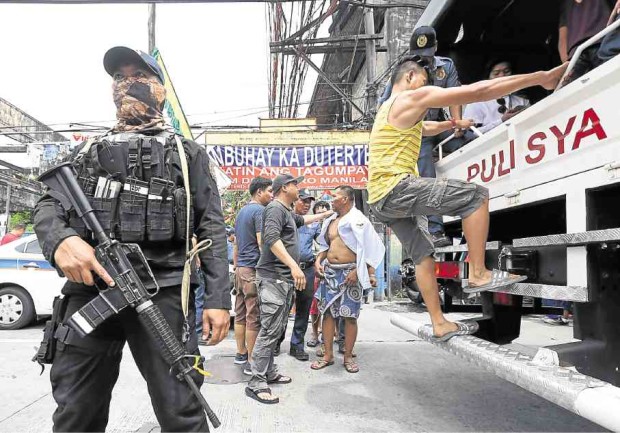Police can no longer conduct drug-related operations as the Philippine National Police (PNP) enforces the directive of President Rodrigo Duterte deactivating all its anti-illegal drug units following the controversial killing of South Korean businessman Jee Ick-joo by a group of rogue policemen last October.
Starting Tuesday, the PNP shall cease and desist from launching anti-illegal drug operations, including buy-bust operations and service of search warrants, a memorandum PNP spokesperson Senior Supt. Dionardo Carlos sent to the media read.
PDEA takes over
Instead of the police, drug related operations will temporarily be handled solely by the Philippine Drug Enforcement Agency (PDEA).
The PNP’s Anti-Illegal Drugs Group and all antinarcotics units in police regional, provincial, district offices will also be deactivated.
This would pose a challenge to PDEA because it only has a total strength of roughly 900 personnel, as compared to the PNP’s thousands of personnel in different police offices.
PNP’s role
“However, walk-in surrenderers should still be processed at police stations according to the PNP’s procedure and guidelines,” the memorandum added.
Why Duterte barred cops from drug ops
The presidential directive was issued after President Duterte presided a joint command conference with the PNP and Armed Forces of the Philippines in Malacañang on Sunday night.
Duterte ordered PNP chief Director General Ronald “Bato” Dela Rosa to dissolve anti-drug units of the PNP after expressing disappointment over the anti-drug police officer involved in the killing of Jee inside Camp Crame in Quezon City.
While police drug operations are suspended, the PNP is directed to prioritize “seven focus crimes including rape, internal cleansing and police community relations activities.”
The PNP leadership also warned commanders who will violate the directives that they will be “dealt with accordingly.”/ac
